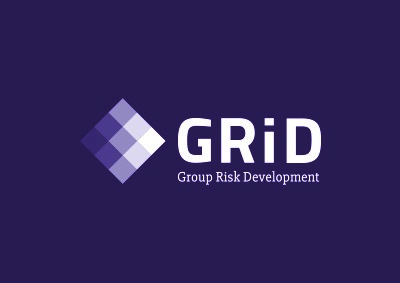1st Feb 2016
National Sickie Day: Employers Tackling Stress And Mental Ill Health As Major Cause Of Absence
- Two in five employers cite stress and mental ill health as a major cause of long-term absence
- Strategies in place to combat absenteeism, such as flexible working, are starting to have an impact
- Acute medical conditions are also a key factor in long-term absence
New research from Group Risk Development (GRiD), the trade body for the group risk industry, has found that stress and mental ill health remain one of the major causes of long-term absence for businesses – but this is an improvement on a year ago.
GRiD’s survey revealed that two in five (42%) of employers point to stress and mental ill health as a main cause of long-term absence. Over a third (36%) said it was a main cause of mid-term absence, while one in six (17%) found it a main cause of short-term absence too.
However, this is an improvement on last year1, when almost half (48%) of employers questioned found this to be a main cause of long-term absence (in excess of six months), 41% of mid-term and 19% of short-term. This indicates that strategies introduced by employers to address issues like this amongst their workforce are having an impact.
One in ten (13%) have introduced stress counselling, while 7% have line managers trained to spot signs of stress or mental ill health. Flexible working remains ahead of return to work interviews as the most popular initiative for reducing absence and improving attendance, with over a third of employers (36%) now engaging in this measure for this purpose. Employers also continue to use procedural structures to improve attendance, such as absence KPIs and board-level monitoring.
1 Compared to GRiD’s employer research, October 2014
Acute medical conditions such as heart attack and cancer continue to take their toll on absence rates, with a third (32%) of employers saying these were a main cause of long-term absence and a quarter (24%) for mid-term absence.
GRID’s latest claims statistics showed that the main cause of claim across all three Group Risk products (Group Critical Illness, Group Life, Group Income Protection) was cancer, with the highest for Group Critical Illness (68%), followed by Group Life (46%) and Group Income Protection (24%). Cancer was followed by heart disease (16%) as the main cause of claims for Life Insurance, by heart attack for Critical Illness (10%) and by mental illness for Income Protection (23%).
Katharine Moxham, spokesperson for Group Risk Development, comments:
“With long-term sickness absence costing UK businesses £4.17 billion a year2, it has never been more important to provide support early on to tackle absence. The impact stress and mental ill health can have on staff in terms of morale cannot be underestimated, neither can their negative effects on business productivity.”
“Promoting flexible working initiatives – including working from home and compressed hours – also ranked highest among employers for improving productivity with nearly a third (29%) of employers saying they were doing this. This makes eminent sense given that home, family and caring issues consistently feature as main causes of absence and achieving a good work/life balance for staff consistently features as a top health and wellbeing priority for employers in GRiD’s annual research (now in its seventh year).”
“While it is positive to see strategies to combat absenteeism having an effect on absence rates and reducing the number of employers citing stress and mental ill health as a main cause of long-term absence, businesses must ensure they are thinking about the long-term wellbeing of their staff if they are to protect the business bottom line. Group risks products offering additional mental health support and financial protection are one way employers can make a big difference to costs in the long run.”
For further information please contact:
Gemma Dunn
GRiD Press Office
Teamspirit Public Relations
T: 020 7360 7877
GRiD@teamspiritpr.com
About GRiD Employer Research
The Group Risk Employer Research study was undertaken in September 2015 among a sample of 501 UK businesses with between 5 and 1,000 employees. Research was conducted by Lightspeed Research for Group Risk Development (GRiD).
About GRiD
Founded in 1998, Group Risk Development (GRiD) encourages awareness and uptake of corporate group protection benefits income protection, group life insurance and critical illness cover on behalf of its members which include insurers, reinsurers and intermediary businesses.
Under the chairmanship of Lee Lovett, Head of Business Development UK and Ireland Life, Munich Re, GRiD aims to enhance the industry s profile among media and stakeholder groups. The Group provides a collective voice to Government and participates in industry wide initiatives such as the qualification in Group Risk launched jointly with the Chartered Insurance Institute. In May 2009, the Group appointed its first dedicated spokesperson, Katharine Moxham, to provide expert media comment on a full range of group risk issues.
Follow Katharine Moxham on Twitter @KMoxham


